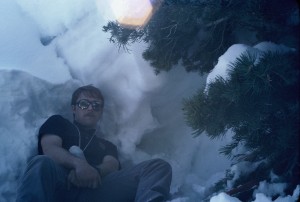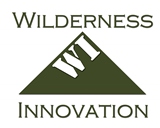It seems that survival experiences, or even life in general is filled with dichotomy, things that seem so opposed to each other, unlikely associations. I have written several blogs and a video or two where I comment that it is wise to look at changing conditions or some new difficulty in a way that is not totally negative. Often we view change, particularly in difficult circumstances, as a new burden to bear, when many times in reality it may well offer us relief and perhaps a way out.
Stephen Callahan in his book “Adrift: 76 Days Lost at Sea” notes the following sentiment many times during his intense ordeal.
“Clouds ease the roasting afternoon sun, but deny me maximum water production. (from solar desalination still) Life is full of paradoxes. When the wind blows hard I move well toward my destination, but I am wet, cold, scared, and in danger of capsizing, when it is calm I dry out, heal, and fish more easily, but my projected journey lengthens and my encounters with sharks increase.”
In the book “Island of the Lost” the crew of the Grafton shipwrecked for nearly two years on a sub-antarctic island, in warmer weather the men face a devastating scourge of blowflies, who lay eggs on literally everything, hatching maggots everywhere, and biting flies that are so visious that the men are disfigured by the sores that develop, the warmer weather is however a relief and allows harvesting plant life in a challenging diet. In the cold the seals are closer to them are easier to kill for food.
Years ago I took some training from Jim Phillips on “Living in Sub-zero conditions, without Fire or Shelter.” One of the first exercises in the class was to make a list of things that were advantages while camping in the winter. Things listed would be such as. No snakes, no bugs, plenty of water, choice of camp spots, ability to use snow for shelter. The list would go on and on, soon it seemed that perhaps it was better to camp in the snow and cold of winter, than the traditional summer camp.
In the WWII story of Jan Baalsrud, “We Die Alone,” he is nearly killed by an avalanche while skiing the mountains along a fjord in northern Norway to escape capture by the Germans. Jan winds up injured and seriously frostbitten. When he finally gets to a cabin for help, they are afraid to keep him there for fear they would all be killed for harboring a fugitive. Jan is unable to walk at all due to his injuries. They end up stashing Jan strapped into a sled, high in the mountains, where people from a remote village are supposed to come by and ferry him into neutral Sweden. He is lowered into a drift well around a large boulder, they left him supplies for a few days. As it turned out German movements and storms made it impossible for rescuers to come for him, it was 27 days before he was rescued! Snow had practically buried him, yet he was able laying in his sled, to melt snow and ice in his mouth and hands from the roof that drifted over him, additionally the drifted snow insulated him from the arctic cold and winds. He was able to survive, though just barely.
The challenge really is to use adversity to your advantage, sometimes the positive effects accompanying change far outweigh the trouble that is seen. If we only see a scenario as a negative we may fail to sincerely look into it to discover the good effects that we may use to benefit us. A kite cannot rise without the force of the wind opposing it. If we only see the wind, we fail to see how it may be used by us to our advantage.
One ancient writer who knew many difficult and challenging times stated, “there must needs be an opposition in all things…” further indicating that troubles and hardship make the good times better and more appreciated.
The other day I was hiking in a canyon that has one section that in the summer is filled with boulders and rock debris that must be navigated around. This time of year with snowfall and drifting, the path is almost as smooth as a sidewalk.
It is difficult to find a book telling the story of some survival experience, where the survivor does not in some way become involved in a dichotomy, where the seeming death knell blow ends up providing the energy or means to forge ahead, to actually ease suffering, or even provide the means for rescue.
Until next time, this is Perry Peacock, “Simplifying Survival”



